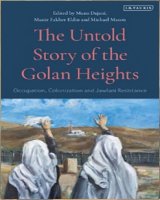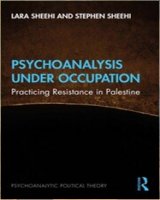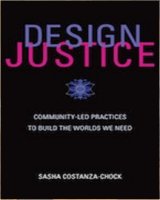
| Second Semester 2022-2023 |
| Title |
Nakbah and survival : the story of Palestinians who remained in Haifa and the Galillee, 1948-1956
|

|
| Author | Manna, Adil | |
| Call Number | DS113.7.M2613 2022 | |
|
Nakba and Survival tells the stories of Palestinians in Haifa and the Galilee during, and in the decade after, mass dispossession. Manna uses oral histories and Palestinian and Israeli archives, diaries, and memories to meticulously reconstruct the social history of the Palestinians who remained and returned to become Israeli citizens. This book focuses in particular on the Galilee, using the story of Manna's own family and their village Majd al-Krum after the establishment of Israel to shed light on the cruelties faced by survivors of the military regime. While scholars of the Palestinian national movement have often studied Palestinian resistance to Israel as related to the armed struggle and the cultural struggle against the Jewish state, Manna shows that remaining in Israel under the brutality of occupation and fighting to return to Palestinian communities after displacement are acts of heroism in their own right.
|
||
| Title |
The untold story of the Golan Heights : occupation, colonization and Jawlani resistance.
|

|
| Author |
Dajani, Muna
Fakhr al-Dīn, Munīr Mason, Michael, 1917-1977 |
|
| Call Number | DS99.G65U58 2022 | |
|
The book focuses on an indigenous community, known as Jawlanis, notably their experience of everyday occupation and their politics of resistance to settler colonization. Chapters feature discussion of the politics of the governed, the politics of Jawlani sculpture, the role of Israeli education policies and the history of agroecological changes. To illustrate the ways in which the current regime of Israeli rule g\has been contested, there are contributions on the six-month strike of 1982, youth mobilization in the occupied Golan, Palestinian solidarity movements, Jawlani art and writing, Jawlani counter-mapping and the hidden history of an Israeli ski resort.
Rich in ethnographic detail and with chapters from diverse disciplines, the book is unique in bringing together Jawlani, Palestinian and UK researchers. The innovative format - with shorter 'reflections' from young Arab researchers, activists and lawyers that respond to more traditional academic chapters - establishes a bold new 'de-colonial' approach.
|
||
| Title |
Psychoanalysis under occupation : practicing resistance in Palestine
|

|
| Author |
Sheehi, Lara
Sheehi, Stephen, 1967- r] |
|
| Call Number | BF175.4.C65 S54 2022 | |
|
Heavily influenced by Frantz Fanon and critically engaging the theories of decoloniality and liberatory psychoanalysis, Lara Sheehi and Stephen Sheehi platform the lives, perspectives, and insights of psychoanalytically inflected Palestinian psychologists, psychiatrists, and other mental health professionals, centering the stories that non-clinical Palestinians have entrusted to them over four years of community engagement with clinicians throughout historic Palestine.
Sheehi and Sheehi document the stories of Palestinian clinicians in relation to settler colonialism and violence but, even more so, in relation to their patients, communities, families and one another (as a clinical community), so they track the appearance of settler colonialism as a psychologically extractive process that often effaced by discourses of normalization, trauma, resistance and human rights, with the aid of clinicians, as well as psychoanalysis.
|
||
| Title |
Design justice : community-led practices to build the worlds we need
|

|
| Author |
Costanza-Chock, Sasha, 1976-
|
|
| Call Number | NK1520 .C675 2020 | |
|
This book explores the theory and practice of design justice, demonstrates how universalist design principles and practices erase certain groups of people—specifically, those who are intersectionally disadvantaged or multiply burdened under the matrix of domination (white supremacist heteropatriarchy, ableism, capitalism, and settler colonialism)—and invites readers to “build a better world, a world where many worlds fit. Design Justice goes beyond recent calls for design for good, user-centered design, and employment diversity in the technology and design professions; it connects design to larger struggles for collective liberation and ecological survival.
|
||